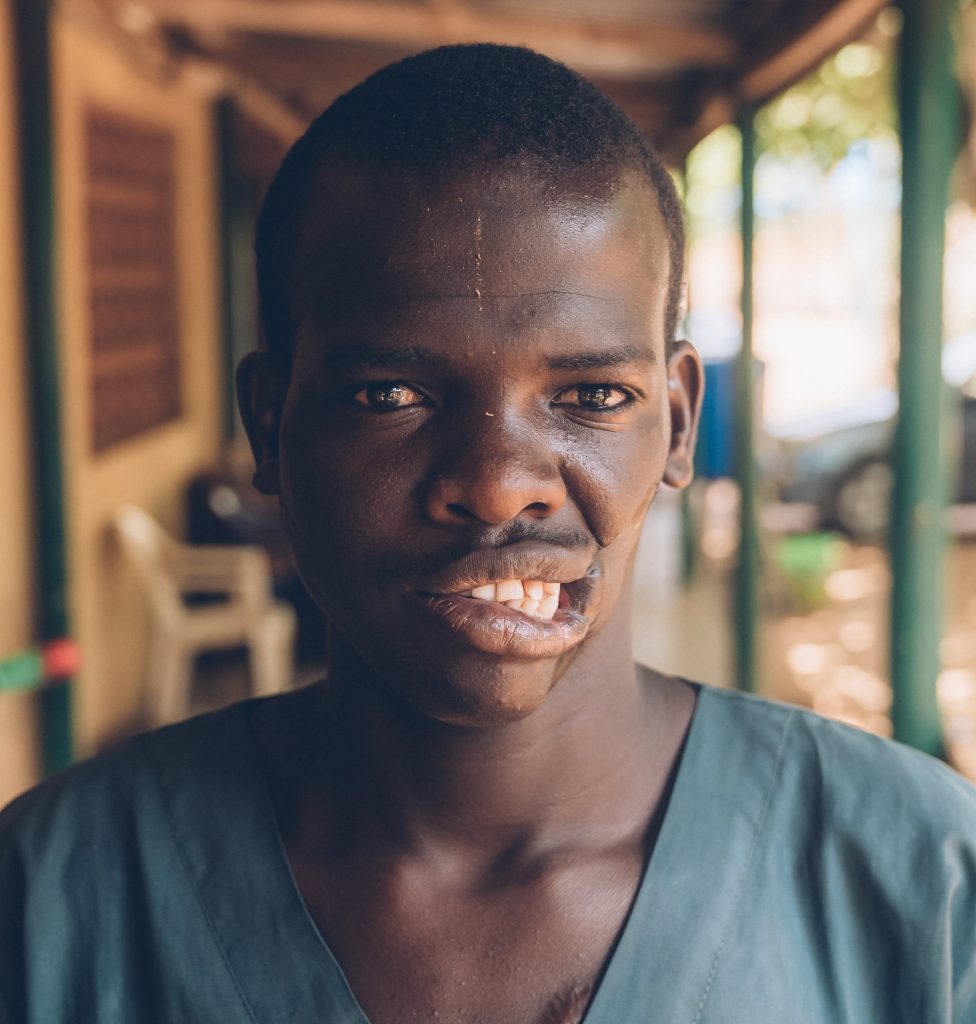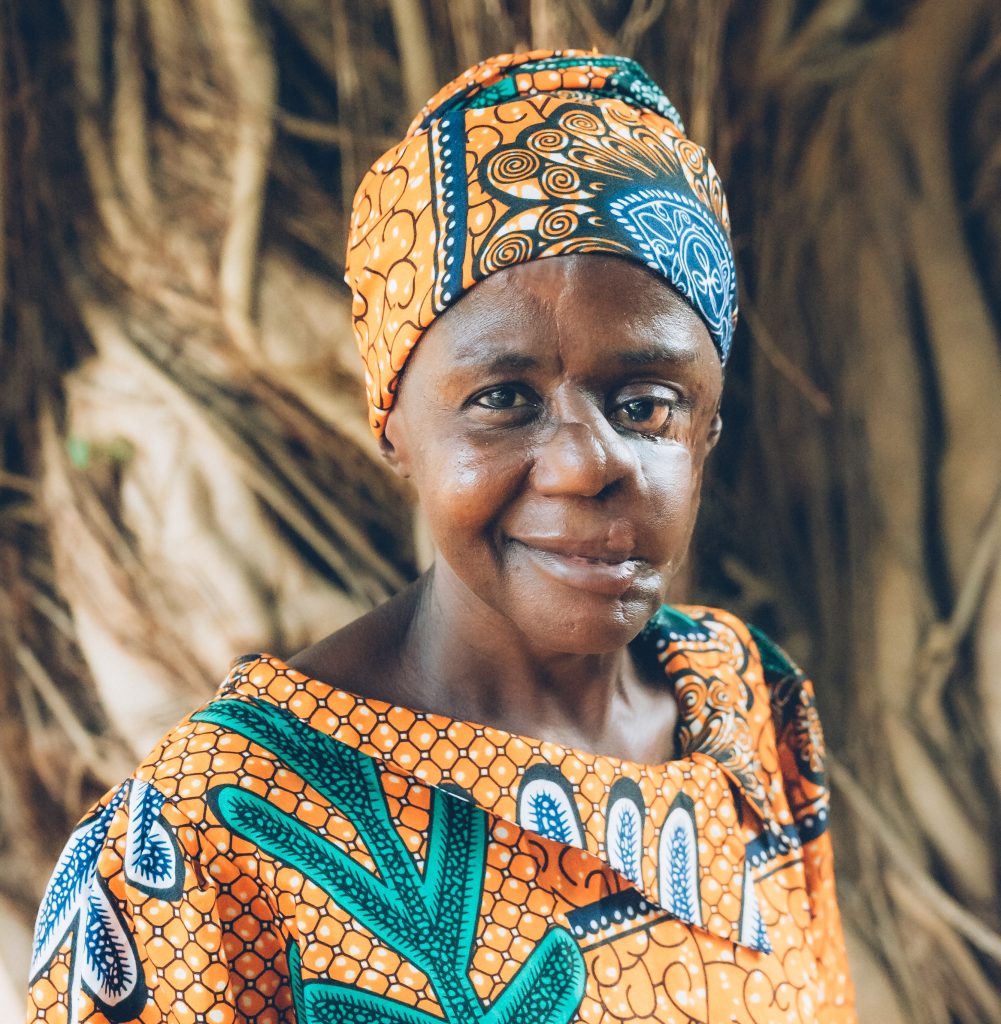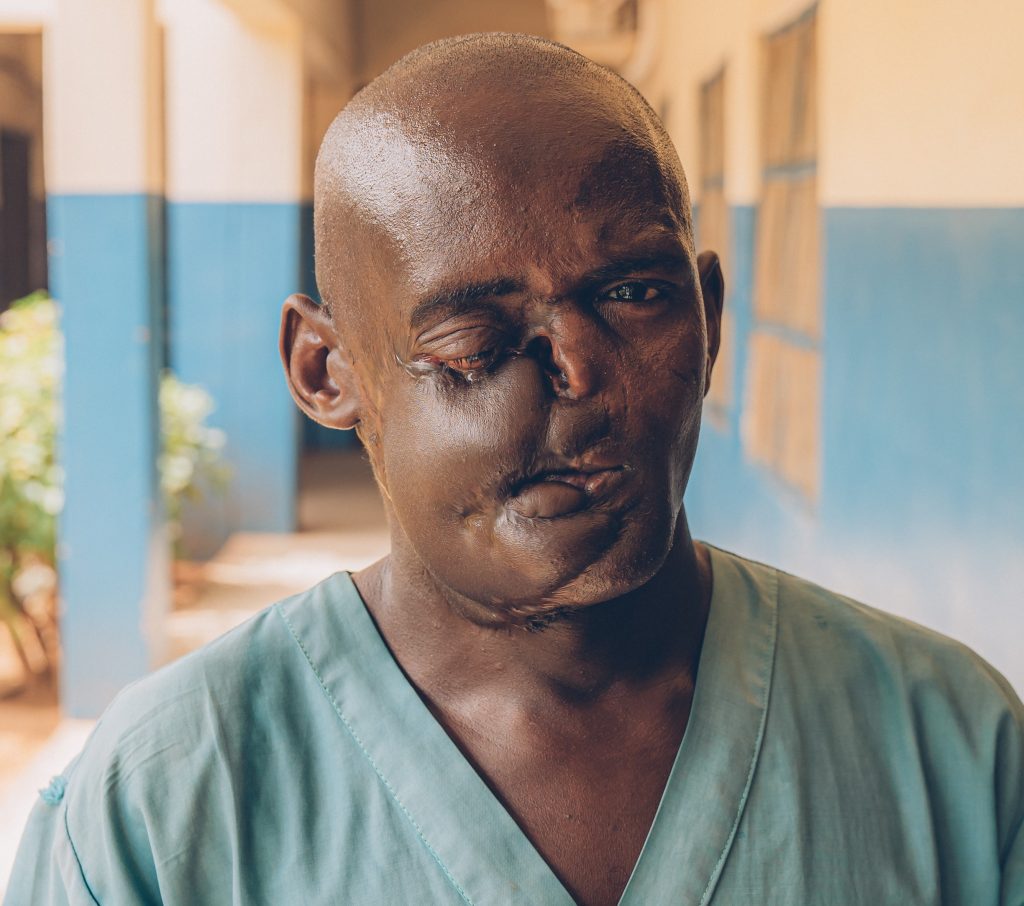In many ways, Muhammadu, Mulikat and Dahiru have little in common. They were born in different corners of Nigeria (Yobe state in the northeast, Lagos in the southwest and Niger state, in the center) and grew up in different circumstances and with different dreams. But one day, when they were still children, their lives and those of their relatives changed forever because of noma.
Noma is a completely preventable disease, easy to treat if addressed in time. Untreated, it eats away the skin and bones of the face in just a few weeks, leading to death for up to 90 per cent of people infected, most of whom are children. The 10 per cent who survive are left with a future of pain, discomfort and social stigma.
Today, noma survivors Muhammadu, Mulikat and Dahiru see each other every day at Sokoto Noma Hospital, which is supported by MSF. All three arrived after long journeys seeking help for their condition. After receiving treatment and several rounds of surgery each, they regained confidence and hope for the future. All three decided to stay at the hospital and become part of the solution.
Muhammadu
“My father took me to several places in search of a cure, including three months in a hospital in Maiduguri, in the northeast,” recalls Muhammadu, now a secondary school student at a local school and a cleaner at Sokoto Noma Hospital. “Someone told us about a hospital in Sokoto, but it was very far from our town. My father had to sell some animals to pay for the transport.”
When Muhammadu arrived in Sokoto, he could barely open his mouth, making eating and talking almost impossible. After two rounds of surgery, his condition and his outlook have improved immeasurably. “I can go anywhere now, and I don’t feel ashamed,” he says. “In addition, I strive to educate others about noma: so they know, for example, that cleaning their mouths daily reduces the risk.”

Mulikat
Muhammadu is following the example of Mulikat, a powerful advocate in the fight against noma. Mulikat is also, without a doubt, the most elegant person in this hospital. Looking impeccable in her colourful dresses, Mulikat works with the health and mental health promotion teams. Telling her story helps people within local communities to recognise the disease early and helps children with noma and their families not to lose hope.

Dahiru
Dahiru pushes a stretcher with a child who has just finished his first round of surgery. He remembers his first surgery very well, soon after he arrived at Sokoto noma hospital as a teenager from Niger state. Recovering in hospital, he met his first wife, Fatima, also a noma survivor, and decided to stay on and work at the hospital as a cleaner and warden. Unfortunately, Fatima died giving birth to twins, who also died. “It was very hard,” says Dahiru, “but I remarried and now I have two healthy children. I hope they can go to school soon.”

The hospital has become a place of hope for Muhammadu, Dahiru and Mulikat. Not only have they had their dignity restored through the long process of recovering from noma, they have also found the means to live the dreams that had been once snatched from them by the disease: dreams of a normal life, an education, a job, a family. As they perform their daily duties in and around the hospital, they are an inspiration to the people affected by noma and other survivors who arrive at Sokoto often feeling as hopeless as they once did.
Education is very important for all three. They see it as the key to making choices about the future, now that noma no longer holds them back.
Mulikat returned to education and succeeded in gaining a diploma in health information management in 2018. She is also a co-founder of Elysium, noma’s first survivors’ foundation, while she has travelled abroad to share her story and raise awareness of the disease.
Muhammadu made a decision on arriving at the hospital.
Muhammadu and Dahiru are now friends. Although they work at different locations within the hospital, their meetings are filled with warmth as they smile and exchange pleasantries and news.
Today, noma is closer than ever to official inclusion on the World Health Organization’s list of neglected tropical diseases, which should bring more attention and more resources for tackling it. This year will hopefully be a turning point in the lives of Muhammadu, Mulikat, Dahiru and all the other people suffering from or living with the consequences of noma.
MSF has supported the Nigerian Ministry of Health’s Sokoto Noma Hospital since 2014, providing reconstructive surgery, nutritional support, mental health support and outreach activities. Since 2014, MSF’s surgical teams have carried out 1,152 surgeries on 801 patients. All services at Sokoto noma hospital are provided free of charge.












